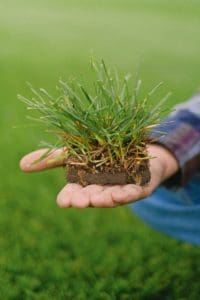World Environment Day takes place on June 5th every year. It was established by the United Nations to raise global awareness and drive action around rising environmental issues. It’s an invaluable platform to encourage individuals, communities, businesses, and governments to come together and address environmental challenges, both internally and globally! This year the theme is ‘Beat Plastic Pollution’, and speakers from around the world are coming together to talk about the pathways we can take as a planet to minimise plastic pollution and ultimately become a circular economy.
Many still think plastic is an unavoidable part of our industry, but in recent years we’ve implemented massive improvements in our management of plastic waste. We’ve transformed operational processes to not only avoid plastic waste but seek out sustainable and biodegradable solutions wherever possible. We’re so proud of how far we’ve come and couldn’t be more excited about the pollution-free path we’re paving in our industry. But where did the journey begin, and how do we consistently avoid plastic waste when it’s everywhere in our sector? We sat down with our Director Ian & Interim Chair Kye to chat about all things plastic, the global reporting initiative and why this seismic shift to sustainability is such an important part of Smarter Services’ future!
Beating plastic pollution; the Smarter Services pathway
Over the last few years, we’ve tried to move away from the obscene use of plastics. Our main supplier of chemicals and cleaning solutions used to shrink-wrap all of their packaging up on a pallet and then bring it to us in that fashion. So we’ve been working with them to not do that anymore!
The next stage was to reduce the amount of plastic we use internally; we are working with our supplier on this at the moment. In fact, on our next meeting agenda, not surprisingly, is the topic we’re talking about today! Let’s take our trigger bottles, for example, they’re all recyclable now, and we recycle those at our client sites. If our client doesn’t have a recycling program, then our teams will pick those up, and we’ll take them to a specific recycling centre.
Clean solutions, planet-friendly products
We are always looking at ways of reducing plastic even further, so we are producing our own cleaning solutions on five sites now. That means there is no chemical solution being brought to site, to then be diluted. So it is just water and electrolysis*; we then use that environmentally friendly cleaning solution. So on some live sites, that is saving plastic for sure. All of the trigger bottles they do use on-site are recyclable, even the triggers now. Because for a long time, the triggers weren’t recyclable but they are now!
In terms of forward-thinking, we are now looking at some soluble sachet solutions. So, instead of having a five-litre container of chemical solution, the same solution will come in a sachet, and the sachet itself gets dropped into the trigger bottle. The sachets are made of either kelp or soya or a similar planet-friendly material. It then dissolves, doesn’t degrade the solution and again reduces the use of plastic.
*Electrolyzed water (EW) is a new type of cleaning and disinfecting agent; it’s safer and more effective than traditional chemicals, can kill 10x more bacteria than bleach, and is environmentally friendly.
Reducing larger-scale plastics
A lot of our equipment is made encased in plastic, so part of our supplier visits is to ensure that when we buy equipment, it’s actually being made with recycled material, and a number of manufacturers do that today already! Our longer-term strategy is only to buy equipment that is made by people who use recycled plastic for the main parts of the equipment.
Small changes add up on paper
We went almost paperless a number of years ago. And you might think, well, that’s paper, not plastic! But actually, all of our site files, across maybe a hundred and fifty sites, included a plastic folder. Then each piece of paper was contained within a plastic sleeve. And further to that, we also laminated printouts and stuck them on the wall with sellotape. So all of those items are plastic, and of course, most of that is not recyclable. So we use a QR code now, and all our files are stored in our app. Which is not only more sustainable, environmentally, but we’ve found it far more efficient in terms of our working processes too.
Keeping spaces clean: On-site recycling
The sites where we provide an external service for litter picking and estate management are effectively sites where our clients are what we classify as ‘intelligent’; this means they do actually provide recycling facilities. So when we go around, in our old-fashioned way with the trolley, our trolley will have two bags; one will be for non-recyclable and the other for recyclable.
When we get to the basement of that building, there’s usually either a recycling container which can take mixed recycling or it is segregated, in which case we would segregate the recyclables at source. That waste then gets taken away by appropriate companies, like Sita or Grundons, all of which have recycling centres.
If there aren’t recycling facilities on site, we as a business also have our own waste transfer licence, so we can take that stuff away and recycle appropriately. Last year, across our business, over 95% of our waste was either incinerated, recycled or repurposed.
Repurposing plastic for charities
In the UK, there are a lot of plastic pieces of furniture and household items which normally go to waste. We’re now working with a charity, Anglo Doorstep Collections, that actually repurposes those items, so that’s another way we’re keeping more plastic out of the system. They’re currently partnered with a Cancer charity Wendy’s Wish, raising money to help cure eye cancers. So in this instance, trying to reduce plastic waste has a knock-on effect that benefits many great causes, as well as the planet!
Looking to the Future
We’re so happy to have Kye join us as our new Interim Chair. His extensive work in sustainability has covered organisations of all types, of all sizes. With his expertise and guidance, we’re implementing new gold standard sustainability reporting to help us stay on track with our plastic-free goals, amongst other key environmental objectives.
“My role includes creating value through my sustainability and assurance expertise, which includes awareness and action for the protection of the environment, which is the main focus of World Environment Day.” – Kye Gbangbola
“My company was the official sustainability reporting consultant to the London 2012 Sustainable Olympic Games. The 2012 Olympics delivered many environmental achievements, including the 249-hectare Queen Elizabeth II Park. And, of course, Gold Standard corporate sustainability reports, using the Global Reporting Initiative Framework. My past achievements across the built environment and in sustainability are significant.
In regards to Smarter Services Limited and the Global Reporting Initiative; the task is to develop a business case. And if our emerging governance structure approves its recommendations, to be the first in the sector to deliver gold-standard sustainability reporting to our stakeholders across the environment, social, governance and economic impacts and targets of the business. Please be assured it’s early in the journey but a great message of aspiration for Smarter Services Limited, to share as a participant and supporter of the UN World Environment Day.”



